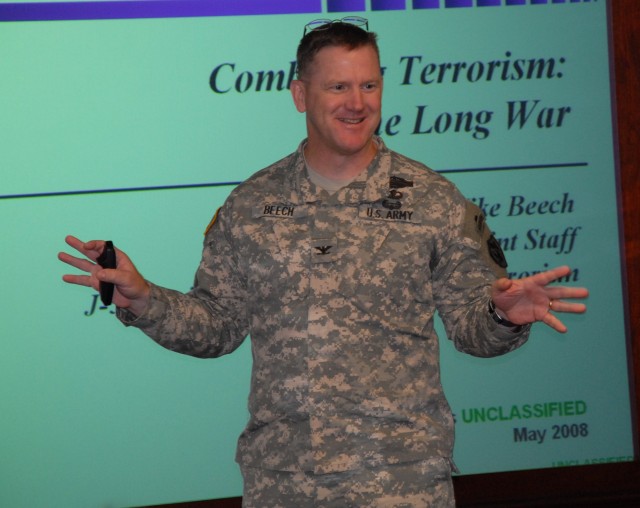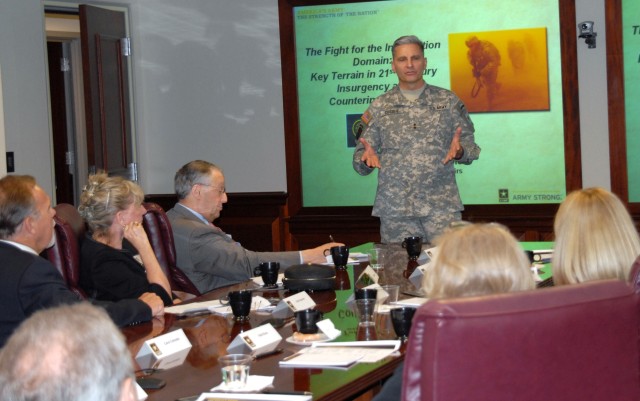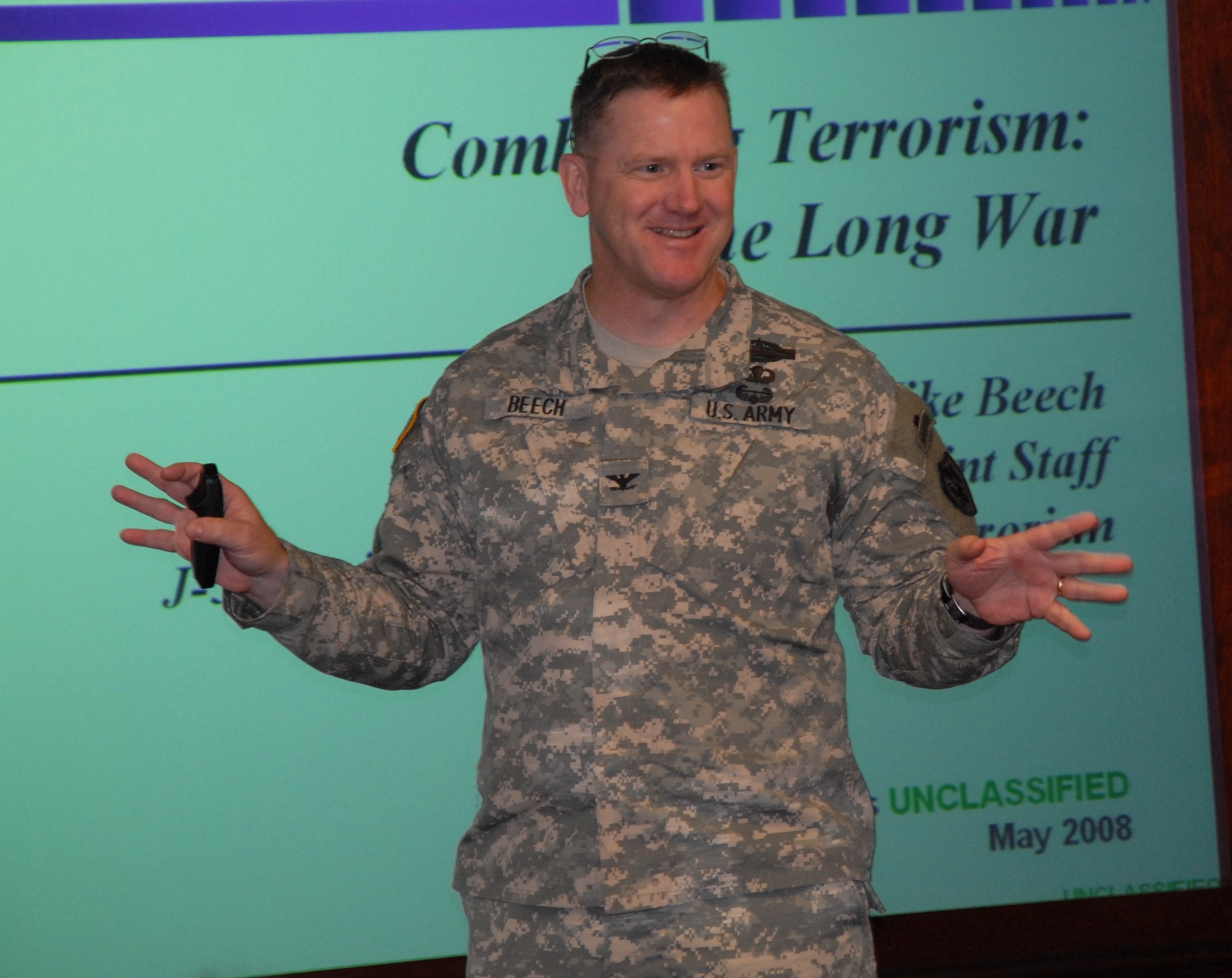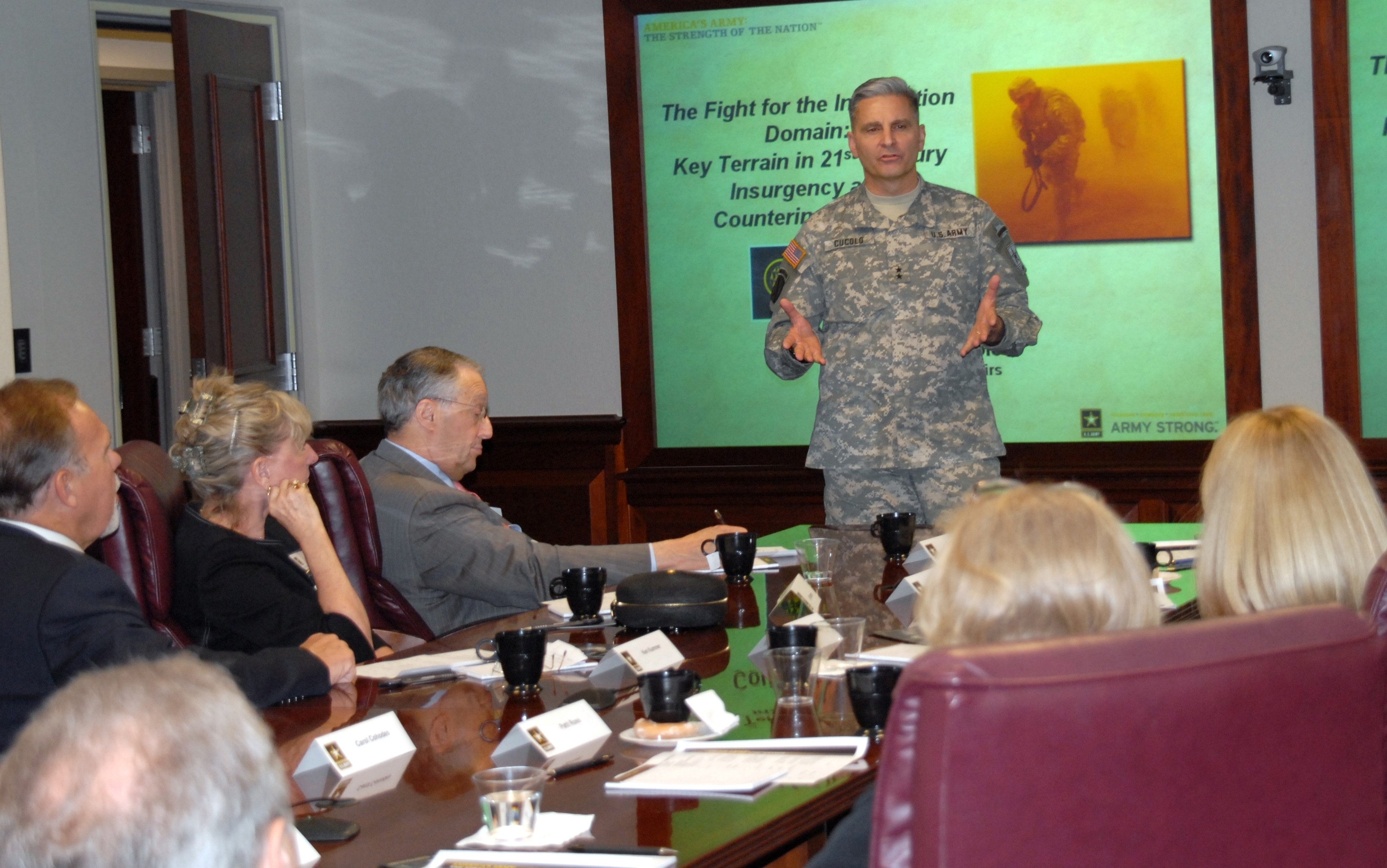WASHINGTON (Army News Service, June 3, 2008) - Soldiers in Afghanistan and Iraq are not only helping with counter insurgency efforts, they are helping connect the people with their governments, Army leaders told Chicago businessmen Friday.
"Soldiers have added 'civics instructor' to their duties," said Brig. Gen. John Nicholson, deputy director of Operations, J-3, the Joint Staff.
Nicholson and other Army officials met with members of the World President's Organization, Chicago Chapter, and their spouses Friday, to explain the Army's current status and its role in the global environment.
Nine WPO members, all current or former chief executive officers, came to the Pentagon on a "fly-in" visit, where business and community leaders are given the chance to learn about the Army and ask questions of the leadership.
Nicholson and Col. Jeff Snow, chief of the Joint Operations Directorate, J-3, spoke to the members of the WPO about the Army's current operations in Afghanistan and Iraq during the "Boots on the Ground" briefing, explaining the basic goals of the Soldiers deployed in each country.
Soldiers in Afghanistan are conducting counter-insurgency operations, Nicholson said, which consist of separating insurgents from the general populace, transforming the environment, and connecting the people with the government.
Afghani citizens are assisted by Soldiers on improvement projects, such as road building, he explained. The U.S. government provides grants for the projects and Soldiers connect the people with their local governments so they can work through the projects together. These projects help establish a good relationship between the people and the government and improve stability.
Soldiers in Iraq are there to fight insurgents, too, Snow said. Seventeen brigades are currently deployed in Iraq, he said, with the primary goal of helping the government regain control of insurgents.
"The amount of people deployed is mind-boggling," Alexandra Ransburg, wife of Dave Ransburg, owner of L.R. Nelson Corporation, said.
The Soldiers feel really good about what they are doing, Snow added.
"You ought to be incredibly proud of your Army," he said.
The WPO members were invited to the Pentagon to learn more about the current status of the Army in hopes they will take the information back to Chicago and educate their communities.
Lt. Gen. David Huntoon, director of the Army Staff, provided opening remarks to the members of the WPO, discussing the challenges and changes the Army faces today. He emphasized that the Army is arraying resources in a very substantive way, with 1.5 billion over the next few years for 65 new childcare development centers, new programs for wounded warriors, education programs for spouses, and residential community initiatives, such as new family housing.
Aca,!A"The Army is now more supportive of spouses and families through programs like the Army Family Action Plan,Aca,!A? he said, Aca,!A"The Army is committed to care for the fallen and their families; driven to care by our ethos and by the dramatic need to care for those who have borne the battle.Aca,!A?
Visitors from the WPO also received presentations on combating the war on terrorism and communications warfare, learning about the changing nature of terrorism and how the media can influence the outcome of a fight.
"We make an effort to tell our story," said Maj. Gen. Anthony Cucolo, chief of Army Public Affairs, "but those who get heard are our champions, the third parties. That's why these fly-ins are so important."
Eugene Ross, chairman of Ross Financial Services, Inc. and former chairman of the WPO, was especially appreciative of the information provided on Iraq and Afghanistan.
"I learned what a complex situation the mid-east is," he said, "There are no absolutes."
(A report by Carrie McLeroy contributed to this article.)




Social Sharing